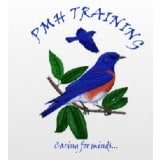This informal CPD article, ‘Training in the Awareness of Perinatal Mental Health’, was provided by Perinatal MH Training, an independent consultancy providing specialist training to those practitioners who deliver care to members of the community affected, (either directly or indirectly), by disorders of Perinatal Mental Health.
Introduction
Mental health disorders are, on the global scale, a public health concern. Many disorders and illnesses may be related to the mental health of the parents during the perinatal period. Some research has indicated that there may be a genetic risk, with epigenetic changes occurring in the fetus during pregnancy, which may be exacerbated by adverse childhood experiences (Arango et al 2021, Babenko et al 2015). There is overwhelming research to suggest that inhibiting or preventing these events, with effective and efficient management strategies, are vital to ameliorate the long-term effects for future generations.
Understanding the perinatal period
During the perinatal period, which extends from conception to 2 years following the birth of the infant, 20% of mothers and 10% of fathers suffer from mental ill health (Howard & Khalifeh, 2020). There is also the risk of difficulty in infant/parent interactions and dysfunctional parental relationships (Gentile & Fusco, 2017). In many countries, maternal mental illness remains the leading cause of mothers’ death. There are no available statistics for the number of fathers who may be affected, but it is known that suicide is the biggest cause of death in men under the age of 50 and around three quarters of deaths from suicides each year are men. It is likely that some of them were fathers.
How to treat and support perinatal mental health
There are several pathways which outline treatment and management options which include peer and social support, medication and therapeutic interventions. However, there have been several reports which have indicated that parents, and mothers in particular, have felt that their mental health before and after the birth of their baby, was either ignored or mismanaged. In one study only 50% of women with antenatal depression were diagnosed, and less than 10% received adequate treatment (Cox et al 2016).
Therefore, it is important that health and social care practitioners are able to understand, recognize, assess, manage and support parents who may be suffering from a perinatal mental illness or disorder. This is not always obvious as parents are aware that some may view anxiety or depressive symptoms as a sign of failure as a parent, and there remains the myth that if the parent admit to feeling this way, they will be judged as a bad parent, and their infant will be ‘taken away’.














